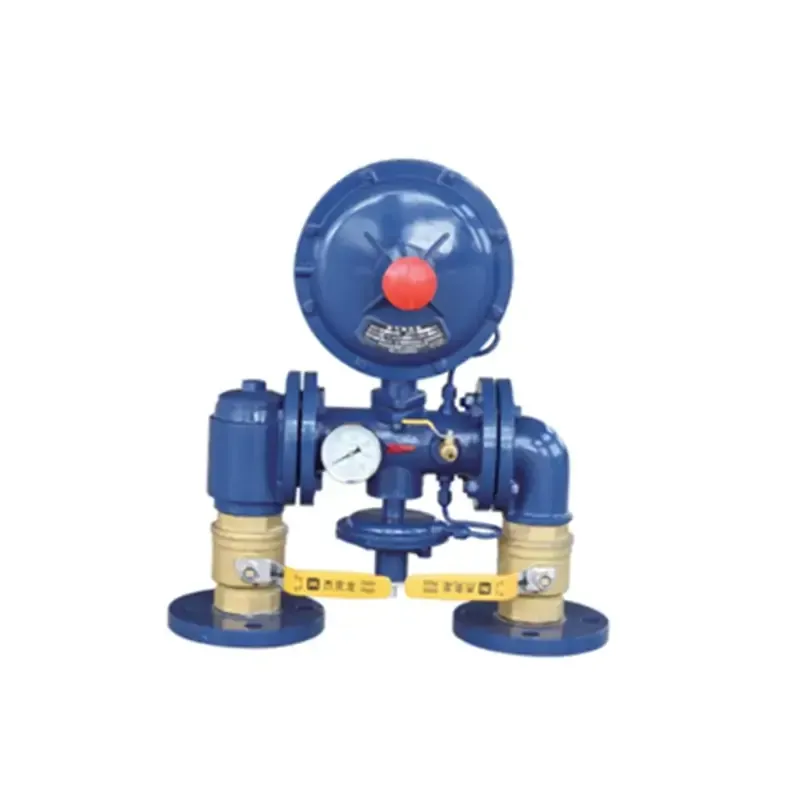
Oct . 13, 2024 10:15
Back to list
Heat Exchanger Design for Natural Gas Applications and Efficiency Improvements
The Role of Heat Exchangers in Natural Gas Processing
Natural gas, primarily composed of methane, is a significant energy source that requires careful processing and management. One of the critical components in the processing of natural gas is the heat exchanger, specifically designed to enhance the efficiency of energy transfer during various stages of gas treatment and production. This article explores the importance of heat exchangers in natural gas processing, their types, and their impact on operational efficiency.
Heat exchangers are devices that facilitate the transfer of heat between two or more fluids at different temperatures. In the context of natural gas, these fluids typically include gas, oil, and water, which must be managed efficiently to ensure the optimal performance of gas extraction and processing facilities. The energy-intensive nature of natural gas processing makes heat exchangers vital for reducing energy consumption and operational costs.
Types of Heat Exchangers
There are various types of heat exchangers used in natural gas processing, each with specific applications. The most common types include
1. Shell-and-Tube Heat Exchangers These are widely used in natural gas processing due to their robust design and capacity to handle high-pressure environments. They consist of a series of tubes, one set carrying the hot fluid and the other carrying the cold fluid. The heat transfer occurs through the tube walls, allowing for efficient thermal exchange.
2. Plate Heat Exchangers Comprising thin plates stacked together, these exchangers offer a large surface area in a compact design, making them suitable for applications where space is limited. They are particularly efficient for low-viscosity fluids and are used in gas processing for both cooling and heating purposes.
.
4. Double-Pipe Heat Exchangers Simpler in design, double-pipe heat exchangers consist of one pipe fitted within another. This design is often used for heating or cooling relatively small volumes of fluid, making them cost-effective for certain applications in natural gas processing.
المبادل الحراري للغاز الطبيعي

Efficiency and Environmental Impact
The efficiency of heat exchangers has a direct impact on the overall energy consumption of natural gas processing operations. By recovering and reusing heat that would otherwise be wasted, these devices contribute to significant energy savings. This is particularly vital in an industry where energy costs can be a significant portion of operational expenses.
Moreover, the environmental implications of using efficient heat exchangers cannot be overstated. Natural gas is often promoted as a cleaner alternative to other fossil fuels, primarily due to its lower carbon emissions. By enhancing energy efficiency in processing operations, heat exchangers help further reduce the carbon footprint of natural gas extraction and processing, aligning with global efforts to combat climate change.
Innovations and the Future
The future of heat exchangers in natural gas processing is promising, with ongoing advancements in materials and design aimed at improving thermal efficiency and durability. Innovations such as compact heat exchangers and enhanced heat transfer technologies are emerging, designed to meet the increasing demand for efficient energy use in the industry.
In addition, smart technologies that incorporate data analytics and IoT (Internet of Things) capabilities are being integrated into heat exchanger systems. These advancements enable real-time monitoring and control, optimizing performance and predictive maintenance, and minimizing downtime.
Conclusion
Heat exchangers are a cornerstone of natural gas processing, crucial for optimizing energy use and reducing operational costs. As the industry evolves, the continuous improvement of heat exchanger technology will play a vital role in meeting both economic and environmental objectives. With their ability to enhance efficiency, heat exchangers will remain essential in the quest for sustainable natural gas processing.
Next:
Latest news
-
Safety Valve Spring-Loaded Design Overpressure ProtectionNewsJul.25,2025
-
Precision Voltage Regulator AC5 Accuracy Grade PerformanceNewsJul.25,2025
-
Natural Gas Pressure Regulating Skid Industrial Pipeline ApplicationsNewsJul.25,2025
-
Natural Gas Filter Stainless Steel Mesh Element DesignNewsJul.25,2025
-
Gas Pressure Regulator Valve Direct-Acting Spring-Loaded DesignNewsJul.25,2025
-
Decompression Equipment Multi-Stage Heat Exchange System DesignNewsJul.25,2025

